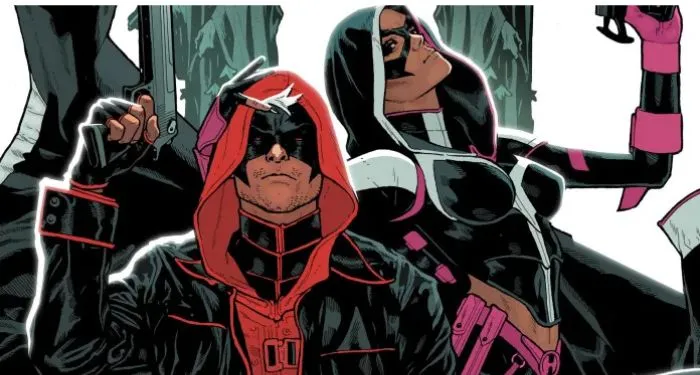After seven hundred days of death announcements, of lost faith, of suffering that has choked our breath and lined our faces, the nightmare of forced displacement is back—displacement from the north to the south of Wadi Gaza, to what the occupation calls a “safe zone” when everybody knows it is anything but.
I’ll never forget the continuous bombing that impelled us to leave North Gaza for the first time, along with thousands of others, on October 13, 2023. Bombs and rockets fell on every side; families crammed into the corners of houses looking for safety; the army called our phones, exhorting us to follow orders. For years we’d worked hard to learn everything we could about how to handle a crisis. Now we forgot it all. We didn’t play games with danger; it was clear we had to evacuate, because we didn’t trust the enemy to spare civilians. We left frantically, families split apart, all of us lunging toward the unknown, too hurried to pack but carrying our home in our hearts, hoping for a swift return.
On al-Rashid Street, which runs down the west coast of Gaza, you could barely make out the shore. The two-way road was packed with cars, with carts pulled by horses and donkeys, with motorbikes, with people on foot, all heading south even as their eyes strained the other way. Between Sheikh Radwan and Deir al-Balah our car broke down at least five times. I don’t know how my cousin managed to fix it, but he did, because he had to get all of us—his wife and three kids, my mother and me, another cousin and her two sons, and a third cousin who was desperately trying to call his wife and daughter and confirm they had gotten into a different car—to a place we thought would be safe. We hadn’t taken any luggage; we didn’t realize we ought to have brought whatever we would need to stay alive. My heart clenched as the journey dragged on. It seemed to me that life after our home would be a mere illusion of living, that in truth we had died when we left our home behind.
We spent the next week agonizing over whether to go back, at least to pick up some clothes and food. Then the news arrived: vehicle traffic to the northern Gaza Strip was prohibited and no one who had left could return. From then on, as I fell asleep each night in the kindergarten where we and many other families had taken shelter, it felt as if we would never wake up, not because we were going to be bombed but because our souls had shattered. Not a day went by when we didn’t reminisce down to the last detail about the city, our house, our bedrooms. Every night my cousins and I would narrate to one another how we had left, even though we’d all been through it together: each of us nursed her own private pain. Writing this now, in a calm green block in Paris, I can still hear the sound of the military drones in the hush of the room where twenty of us women and girls sat staring at the ceiling, praying to go home.
*
For the first months of the genocide we got regular updates from my two sisters who had stayed in the north. One day my maternal uncle, who ran a plumbing company and owned several shoe stores, learned that tank fire had badly damaged his house and that he had lost his warehouses and business premises. He stood in silence, a silence we could all taste. Then he finally spoke. “At least the house is still standing,” he said—which was to say that it hadn’t been completely destroyed.
My family held out for news of our own house. “What’s the sense in a person without a house, or a house without its owner?” my father would say, until we heard that we too had lost part of our home, and because we knew the grief that takes the shape of silence, we said nothing. That night we added a few extra words to our prayers: “Let us return to what is left of our home.”
In the camps, prayers were even louder than in the shelters. Many of the families living in tents in the south had finally been forced to flee the north on foot during the ground invasion, having already lost loved ones. They knew what the north looked like now. “Gaza is in ruins,” they told us. “But even if it’s rubble, we will return.” They would never agree to stay in the south. Their lives there would be little different from in the north—a tent is a tent is a tent—but in the south they were more desperate, far from home, and burdened with a new name, for on top of the fact that most of us are refugees from Palestine’s villages and cities of 1948, we had now become “internally displaced people,” too. What body could bear to have so many labels forced upon it?
After a year and four months away, even the sea held the sorrow of the northern waves. “Sad nights of the north,” I repeated, “remember me, remember me.” It pained me that the north had become the past. None of us forgot its sweetness; it came to us like a breeze. I saw the displaced people gazing into the distance, their eyes fixed on a point far away that I knew was home.
*
On January 15, 2025 my cousin Shahd and I were sitting on the floor with our family crowded all around us, everyone staring at their phones, watching a live broadcast of the conference that announced a temporary cease-fire. I heard the celebrations, the applause, and I sat on the floor thinking through the possibilities. The agreement was not due to come into force for several days. I waited to hear the conditions, and when it was confirmed that in a week the displaced would be allowed to return to North Gaza I wept. This was the hope on which we had subsisted for so long. The week that followed went by slowly and painfully. All I could do was say the words “when we return” and “I’ll see you in Gaza” and think about how I was going see my two sisters again, how I could lose myself in the city’s embrace and bid farewell to the war.
The day came. Many of the other displaced people had decided to stay another week to avoid the rush of returnees, but none of us had any appetite for waiting, and when the checkpoints opened that morning we picked up our sorrows, the hard times we’d lived through, the conversations we’d postponed, and joined the huge crowds setting off on foot. It felt like pilgrimage season. I didn’t feel any distress, I didn’t complain that I was tired or thirsty, I just sat down a kilometer before reaching our door to collect myself and hold back my tears.
Relatives impatient to greet us had, we saw online, put up a sign reading GAZA CITY WELCOMES YOU. My eyes sought it out the entire way, and when my cousin and I reached it we looked at each other and laughed like we were the only ones in the street—but the whole huge stream of people was smiling and laughing like us, despite the exhaustion and the long walk, laughing and laughing for our dear city, our dear nation. Soon, though, Gaza fell upon us with reproaches; wherever we turned we met destruction. We recognized places only by memory: here was Café Ahwetna, there was Abu Hasira restaurant, there was Hotel Deira. We cried because we recognized the streets despite the devastation and could map out a new route when we found a road closed.
When we arrived at the house I was able to believe at last that it really was “what was left,” that parts of it were gone. In my brother’s room just one wall was still standing, the others replaced with plastic sheets. My sisters had prepared for our reunion, cleaning out the stones and debris that had flown inside amid the bombing, repairing the broken furniture, and getting warm food ready to restore our spirits after the seven-hour walk. Seeing them freed me from my guilt, from my feelings of helplessness, from my longing that had somehow stayed contained until now. Every few minutes I would get up, walk around, and touch the walls and furniture, as if to confirm it was still real.
I sat each morning watching my family and neighbors carve out a life in a place that seemed unliveable. And I joined in: we dug, we cleared rubble and trash, we removed the remains of ordnance. Some people pulled bodies out of their homes. Nobody complained. If you found yourself in crisis you didn’t seek advice but came up with a solution alone, because everybody was busy rebuilding.
It was a time of rebirth. I was there when our neighbors swept away the ashes of the house opposite ours; I saw people reassemble a house using mattresses and bedcovers; I saw them set up a supermarket in a tent and a bakery in the open air. The city came back to life even without foundations to hold up its weight, without seats on which to rest.
*
On September 9, months after the army broke the cease-fire and after months of continuous threats that they would reinvade, Gaza City was again ordered to evacuate. I had left Gaza in April but stayed in close touch with my family, and when my younger brother shared a picture of the leaflet my heart sank. It instantly took me back to our departure in the early days of the war. But we had vowed back then that we would stay no matter what, that we would never again abandon the city to swallow the fire alone.
I asked them what they were planning to do. Nobody could answer. Tears were easier than thoughts. The children’s bodies were too soft to face bullets, their fear too great to witness an explosion; the adults were too exhausted to go looking for an empty plot of land to pitch a tent, their bodies too weak to resist danger. The mind went round and round, examining possible scenarios, pushed this way and that whenever the earth trembled with a rocket strike or a missile exploded nearby.
And so at first everyone ignored the threats. The wheel of life rolled on. They were determined to go on living under the rocks of the devastated city—but the occupation tested the mind’s power to bear up under strain, the body’s ability to withstand shrapnel, gunpowder, falling rubble. There were multiple massacres every day, in houses, in tents, in vehicles, in businesses, in apartment blocks sheltering over fifty families. People lost everything they owned. Every law was violated, openly and shamelessly; no one was willing to stop it.
The pressure was unbearable. People sitting in their homes started asking, “What should we take?” They didn’t know where they were going. Those who managed to find a tent or a place to stay further south knew they would need to pay hundreds of shekels for transport. I saw we were lucky, the first time around, that we didn’t have to choose between our belongings; we just bid it all a grief-stricken farewell. This time you had to narrow it down to the bare essentials, to leave what you loved—diplomas, gifts, favorite clothes—and take only the identification documents, firewood, flour, and provisions you needed, because you couldn’t afford to make a second trip.
How do Gazans read the evacuation notices now? Apart from grief and fear, more and more often there is nothing to help you on your way: no money, no tent, sometimes no surviving family members with whom to make the journey, no plan and no one to talk to, just the orders flying over your head to keep you on the move. Staying in the city means death, and leaving too means death because it gives you no way to stay alive. Those who leave know that they are making an unforgivable mistake, but they want to save what remains of their lives. Others don’t give leaving any thought. “What more do we have to lose?” they ask. “What life are we fighting for?” Questions that drive you to insanity. What do we have but our prayers that God ease the burden of this immense loss: an entire city, alive and hopeful, being devoured before the eyes and ears of the world every day, with no response?
There is nothing I can do. When I talk to the loved ones I left behind, I don’t feel the trembling of my hands or the burning of my tears, I just hear my mother’s voice telling me that they’re leaving and that our house will once again be sad and alone. Will my home forgive me for leaving so quickly, without saying goodbye? Will Gaza forgive me if I say its name and tell its story? I write now lest the story change in future; I write so that the children who are living through this will know that they were left alone—that they were never more in the eyes of the world than one item of breaking news.
When we say “we’ve lost our city” we mean that a civilization has been destroyed. There is no defense we can offer our home: we have done wrong by our city, even if we did not abandon it amid a wealth of options. But still I write to it in gratitude—because it is from you, Gaza, that I learned everything I know about how to live. I write so that you remain in my memory as you were, so that the world knows you as it should, because you are our first refuge, and our last.




















 English (US) ·
English (US) ·